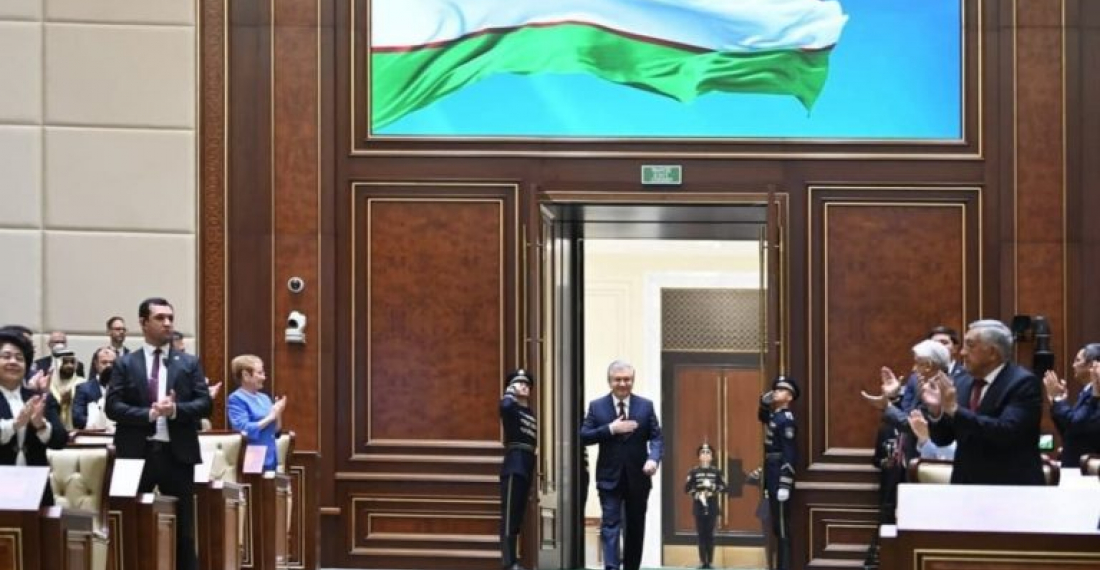Uzbekistan's President Shavkat Mirziyoyev was sworn in for his second term at a joint meeting of two chambers of the parliament held in Tashkent on Saturday (6 November).
Mirziyoyev used the occasion to unveil a seven point strategy for the future of Uzbekistan which encompasses many points he had made during his election campaign, and also re-enforces the policy of reforms that he initiated when he became president in 2016.
“We have developed a strategy for the development of the new Uzbekistan and widely discussed it together with the people during the election campaign. In this important conceptual document, in order to ensure the consistency and continuity of our transformations, the main idea is “From an action strategy to a development strategy,” he said.
The strategy covers seven areas: "the building of a people’s state through the development of a free civil society, which will also entail more decentralisation of decision making from the centre to the regions; strengthening justice and the rule of law, respect for the honor and dignity of a person. To this end, the judicial system and the institution of the legal profession, the activities of law enforcement agencies will be improved. Protection of the rights of entrepreneurs and owners will be strengthened. All the forces and means of the state and society will be aimed at eradicating corruption. Activities in this direction will not be limited to bringing the perpetrators to justice, but will also be aimed at eliminating the causes of corruption, using effective preventive measures.
The strategy also highlights the goal that "by 2030 Uzbekistan should enter a number of states with an above-average per capita income". This will be achieved primarily by stimulating the private sector and increasing its share, as well as attracting foreign direct investment. Priority measures will be taken to ensure macroeconomic stability and reduce inflation to 5%.
Major projects are planned to provide the population with housing and clean drinking water, build modern roads and communications, improve public transport and communications between regions.
The new strategy also envisions the delivery of quality education and health care and the salaries of teachers and doctors will be increased
The strategy appears to introduce a new ideological rallying cry aimed at bringing the country together. “New Uzbekistan – an enlightened society” will prioiritse "the formation of healthy convictions among young people and the strengthening of inter-ethnic harmony and mutual respect."
The sixth element of the strategy discusses global challenges, such as the environment and proposes the development of the zone of ecological innovations and technologies in the Aral Sea region.
The sevehtn and last element of the strategy looks at foreign policy and security. It envisages increasing the power of the country’s armed forces and strengthening their combat readiness. "Uzbekistan will continue its pragmatic, balanced foreign policy and economic diplomacy. This is, first of all, the further strengthening of good-neighborliness and strategic partnership with the countries of Central Asia, as well as the expansion of mutually beneficial and multifaceted relations with partners in all regions of the world."
Mirziyoyev concluded his inauguration speech saying that "the blessing of the older generation and the trust shown by the youth give me new strength and energy.".







